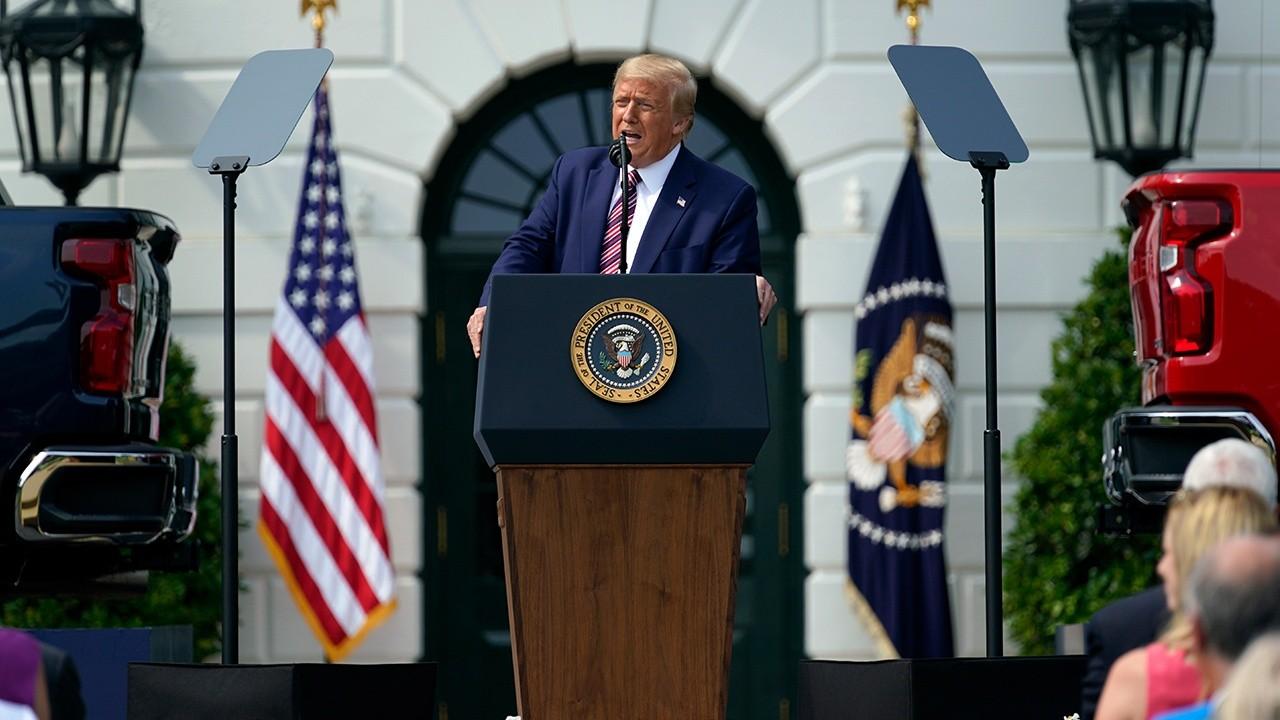Coronavirus crisis shows less regulation is right medicine for our economy: Steve Forbes
Americans are finding out that sometimes less is more when it comes to federal regulations
It may have taken a crisis, but Americans are finding that sometimes less is more when it comes to federal regulations. To better cope with COVID-19’s impacts, the White House suspended or relaxed hundreds of regulations.
MULVANEY ON TRUMP'S EXECUTIVE ORDERS: WHITE HOUSE HAS 'DONE THEIR HOMEWORK' ON CORONAVIRUS RELIEF
For example, rules have been eased to increase ventilator production, permit expedited distribution of newly developed tests and expand the use of telehealth services.
Regulations are much like medicine in that they can be beneficial or toxic, depending on the dosage.
In the case of the COVID-19 emergency, the government red tape was so burdensome that it was getting in the way of the ability to respond quickly and innovate life-saving solutions. The pandemic upended Americans’ daily lives as well, and until they were put on hold, regulations were getting in the way of everything from getting married to taking online college courses. While Americans generally hold a favorable view of regulations designed to protect them, it’s now plain to see that too much regulation is getting in the way.
What American taxpayers and consumers also need to know is that overly zealous regulators are costing them plenty. Federal regulations cost more than $2 trillion, which works out to about $10,000 per employee, according to one estimate.
WHAT A TRUMP PAYROLL TAX DEFERRAL WOULD ACTUALLY MEAN FOR YOUR WALLET
Those costs are equal to about 12 percent of the nation’s GDP. Looking at it another way, a separate analysis found that if only the level of regulations remined the same from 1980 to 2012, America’s GDP would have grown 25 percent larger than it had, representing an extra $4 trillion in annual productivity. Stifling innovation and investment are terrible ways for Washington to “help” American families. Fortunately, a number of regulatory relief measures have been taken with more executive actions underway. Just 20 of these deregulatory actions will save American consumers and businesses over $220 billion per year, according to the White House Council of Economic Advisers.
Reducing current levels of red tape would result in real incomes to rise by $53 billion per year between 2021 and 2029, it estimates. That represents a $3,100 boost in average annual household income, according to a White House official.
WATCH: DEMOCRATS REFUSED TO COMPROMISE ON THESE 2 CORONAVIRUS ISSUES, MNUCHIN SAYS One particularly helpful reform finalized in July simplifies and streamlines the bureaucratic mess created by the Nixon-era National Environmental Policy Act (NEPA). The overhaul will speed up the review process of infrastructure projects such as road, bridges, new homes, pipelines and new homes while ensuring sound environmental stewardship. Although well-intended, the NEPA review process typically drags on for years and in too many cases, a decade. It’s full of redundant reviews by multiple agencies and enough paperwork to make a cold-hearted bureaucrat smile. And then there’s the likely prospect of court challenges. If the purpose of regulation is to promote public safety and wellbeing, then the delays caused by NEPA fails the test. The collapse of the I-35 bridge in Minnesota during rush-hour traffic took 13 lives a decade ago.
Safety concerns caused more than 100 Mississippi bridges to be closed. In Boston, huge concrete chunks fell onto commuter rail track from the Albany Street bridge.
Delayed approvals have contributed to the problem so acutely the American Society of Civil Engineers gave the letter grade “D+” to America’s deteriorating infrastructure in their 2017 report card.
GET FOX BUSINESS ON THE GO BY CLICKING HERE Not only did the antiquated review process needlessly add many years to life-saving public works projects that we need by yesterday, but postponing the start of a construction project by six years typically doubles the cost.
Cost delays on public projects can add up in a hurry, added $3.7 trillion in costs borne by American taxpayers, according to a Common Good analysis, which ironically also found that such delays also add avoidable pollution to the high cost. Without question, environmentalist groups will try to keep this regulatory reform in legal limbo for as long as possible –- just as they do with most public works projects.
That only serves to underscore the need for the next Congress to codify into law the restructuring of the failed NEPA regulations as well as the regulatory set-asides that helped battle the COVID-19 crisis.
Americans today are living in unprecedented times and have seen that sometimes less regulation is healthier.
Steve Forbes is Chairman and Editor-in-Chief of Forbes Media.





















